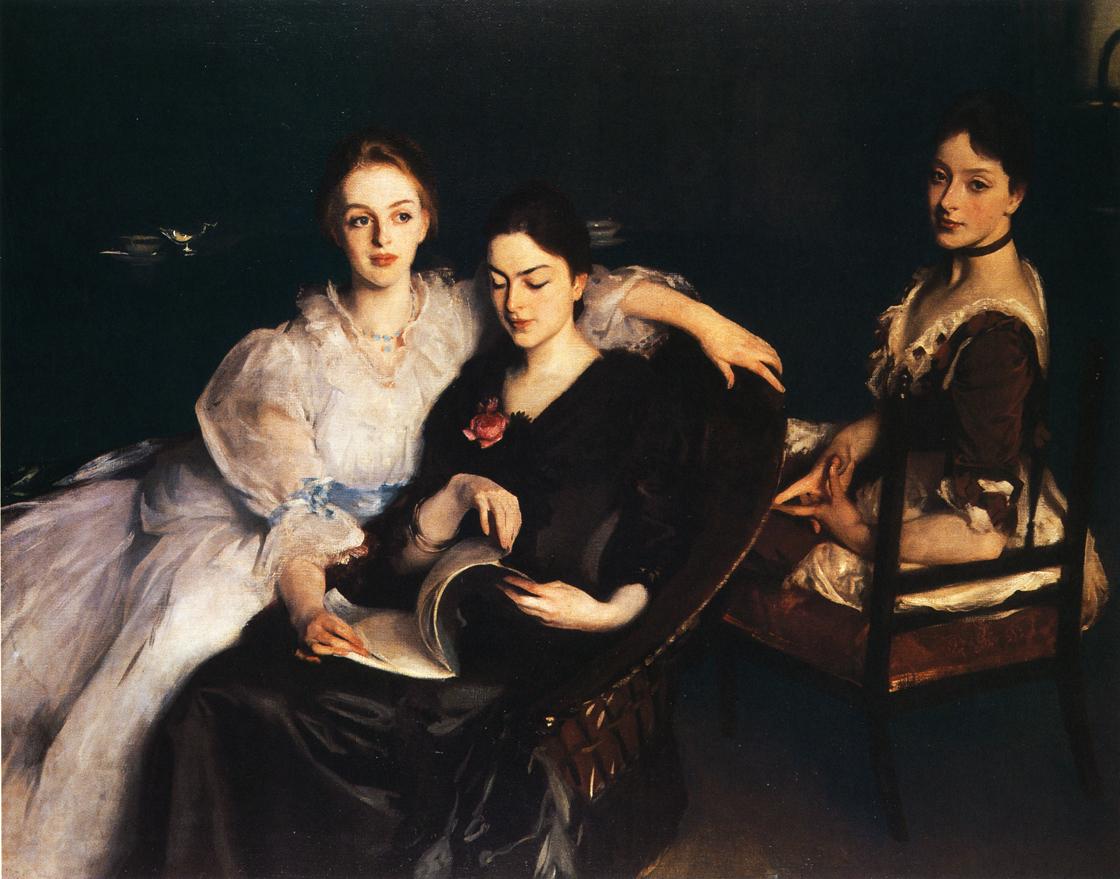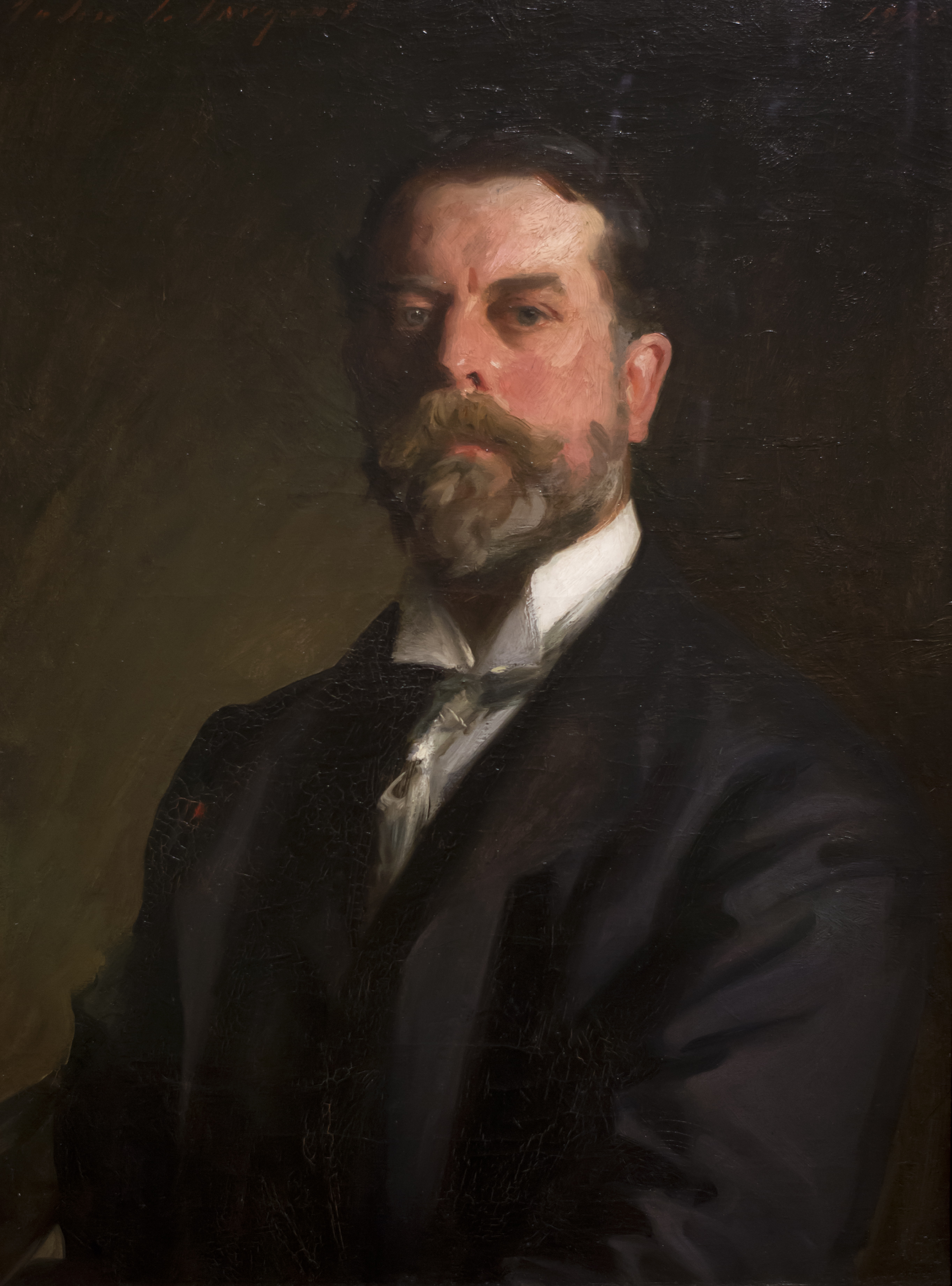Sargent was raised in Italy by his American parents. His talent for drawing took him to Paris where he spent ten years painting the French gentry. When his famous painting Madame X was badly received, Sargent moved to London. He became a portraitist to the rich and famous in both Britain and America. He enjoyed this status for over twenty years before shocking his audience by announcing that his remaining years would be devoted to landscape and mural studies. This group portrait was painted to mark the twenty-first birthday of Mabel Frances Vickers (centre). She is shown with her sisters Florence, aged 18, on the left and Clara, aged 19, on the right. The portrait was unusual for the time, showing the sitters in informal poses and subdued lighting. When Sargent showed the painting at the Paris Salon in May of 1885 the critics snubbed it. The following year in London at Royal Academy's exhibition it was voted the worst picture of the year by a visitors' poll.
The Times of May 22nd 1886 reviewed the painting thus: "Three young ladies, painted in a thin and almost ghostly fashion, gaze straight out of the picture at you. They seem as insubstantial as beings from another world; these faces, medicated rather than painted, these cloudy dresses, these unsubstantial chairs and tables, are they portraits or are they mere suggestions for portraits? Seeing the picture for the first time... one inevitably answers that they are mere sketches; that the artist no doubt intends to carry his work much further. But a second and a third examination bring one to a different mind, and almost, if not quite, convince one that this art, at once very bold and very subtle, is legitimate; that the painter has really got in this apparent slighting the truth about his sitters, and that no further touches could put more life or more character into face or form or accessories."


 John Singer Sargent
John Singer Sargent